Cusack’s Diary
About Andrew Cusack
 Writer, web designer, etc.; born in New York; educated in Argentina, Scotland, and South Africa; now based in London.
Writer, web designer, etc.; born in New York; educated in Argentina, Scotland, and South Africa; now based in London. read more
News
Blogs
Reviews & Periodicals
Arts & Design
World
France
Mitteleuropa
Knickerbockers
Argentina
The Levant
Africa
Cape of Good Hope
Netherlands
Scandinavia
Québec
India
Muscovy
Germany
Academica
Cambridge
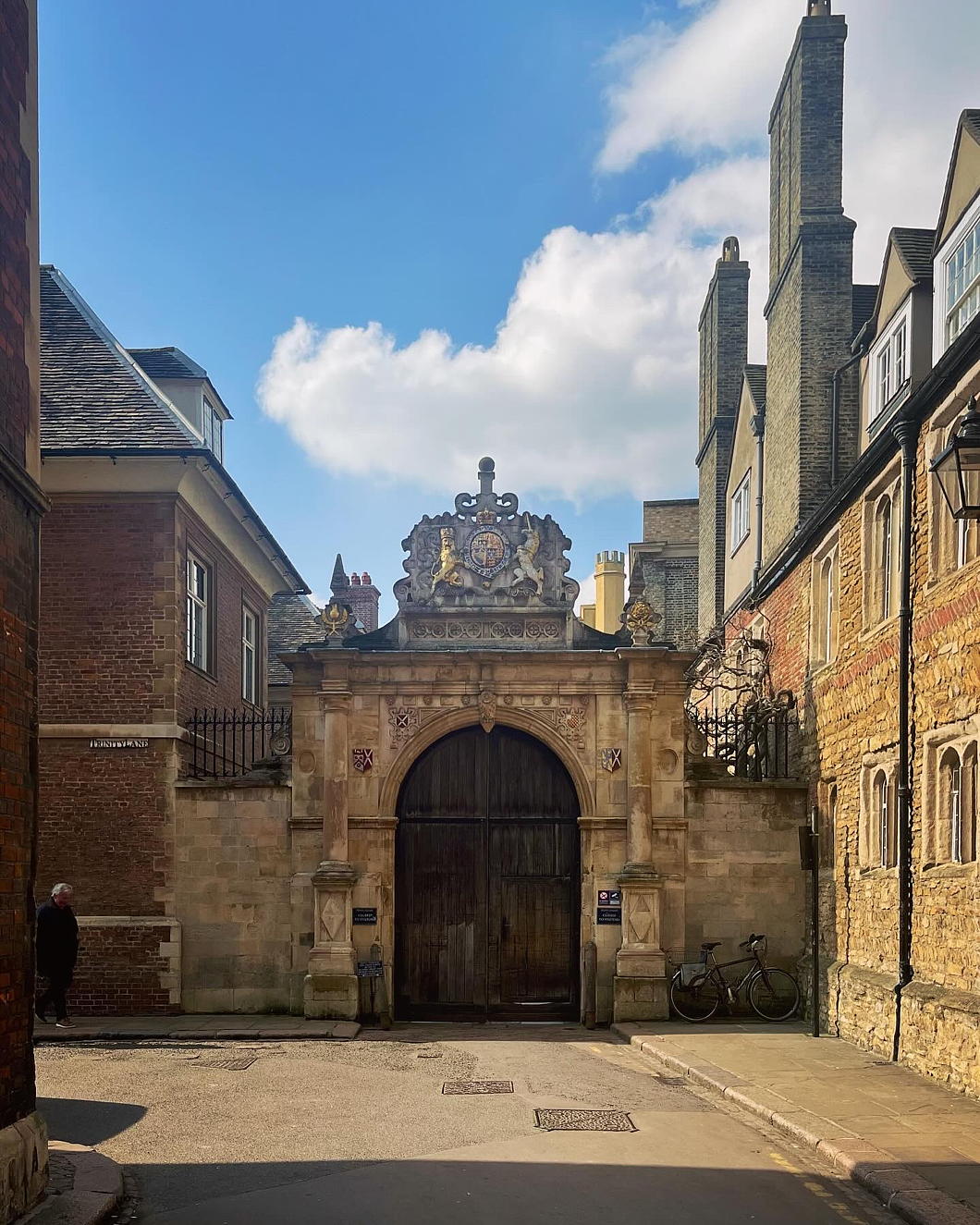
There’s a Dutch vibe to Cambridge that I rather like — but also a lingering Protestant Cromwellianism that I don’t. These two factors are not unconnected, and the highway that once was the North Sea is not so far away.
It is not a bad town. It’s like they took Oxford apart, put it back together again in not quite the same way, and added a lot of Regency infill. Oxford is more mediaeval, Georgian, and neo-mediaeval, whereas Cambridge is mediaeval, Tudor, and Regency.
The Cam is slower, quieter, and more peaceful than the Isis, which again gives it the quality of a Hollandic canal. I suspect the punting is better — or at least easier — here than at Oxford.
And of course it is rather more spacious than Oxford, which is hemmed in by geography in a way that Cambridge isn’t.
But it is also eerily quieter. A smart restaurant on a Thursday night was dead by half ten, and the staff refused our plaintive request for a second round of Tokay. (Protestantism.)
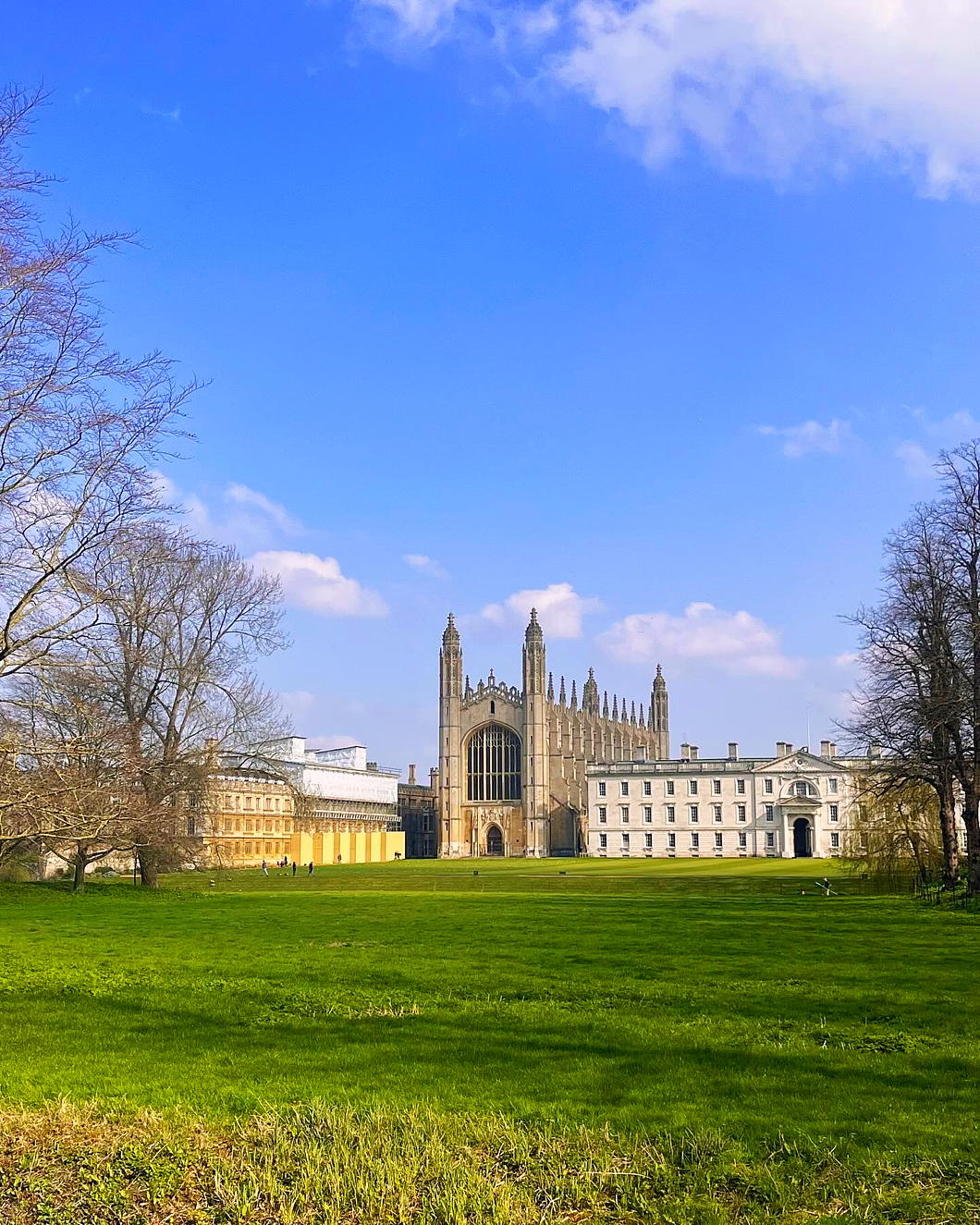
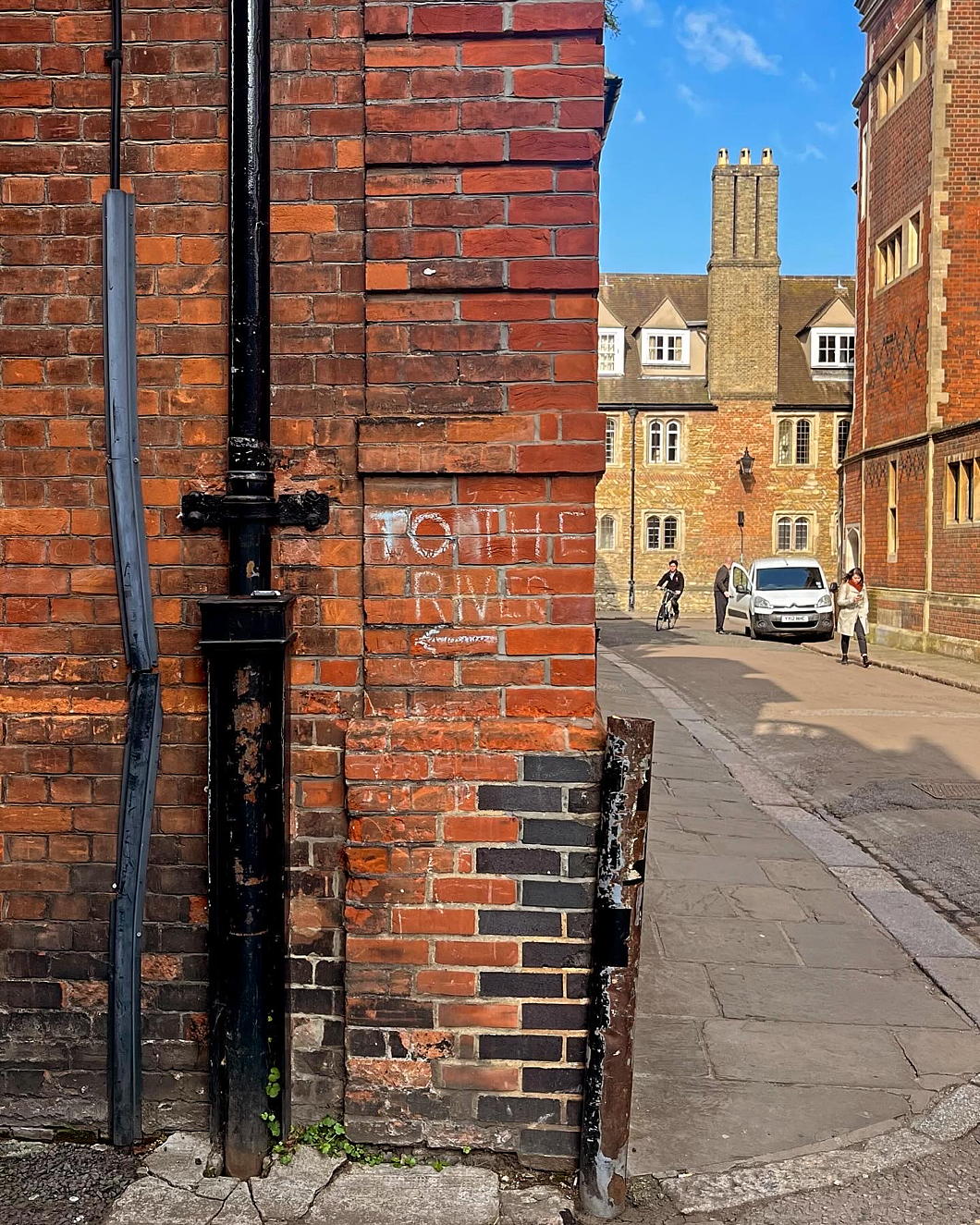
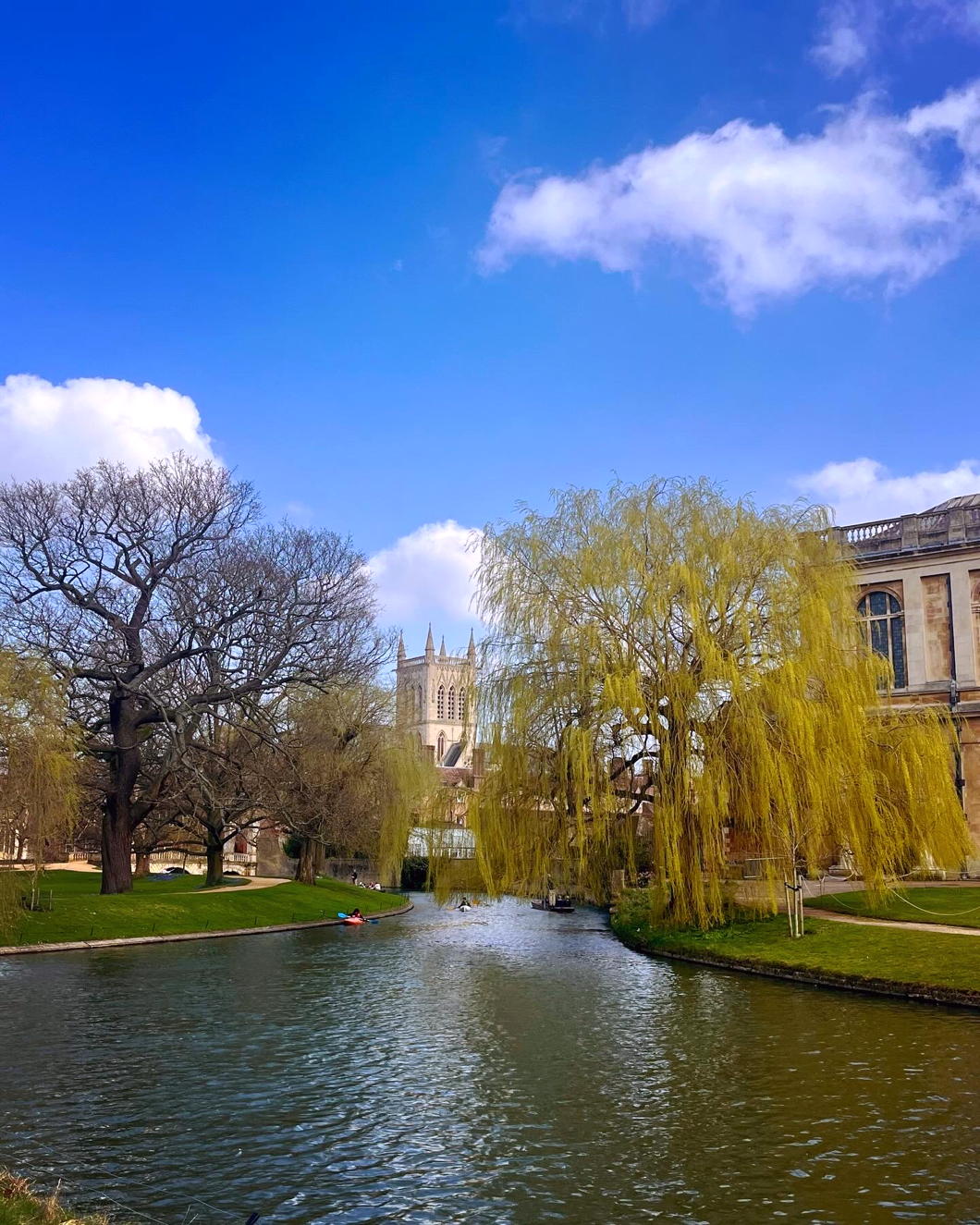
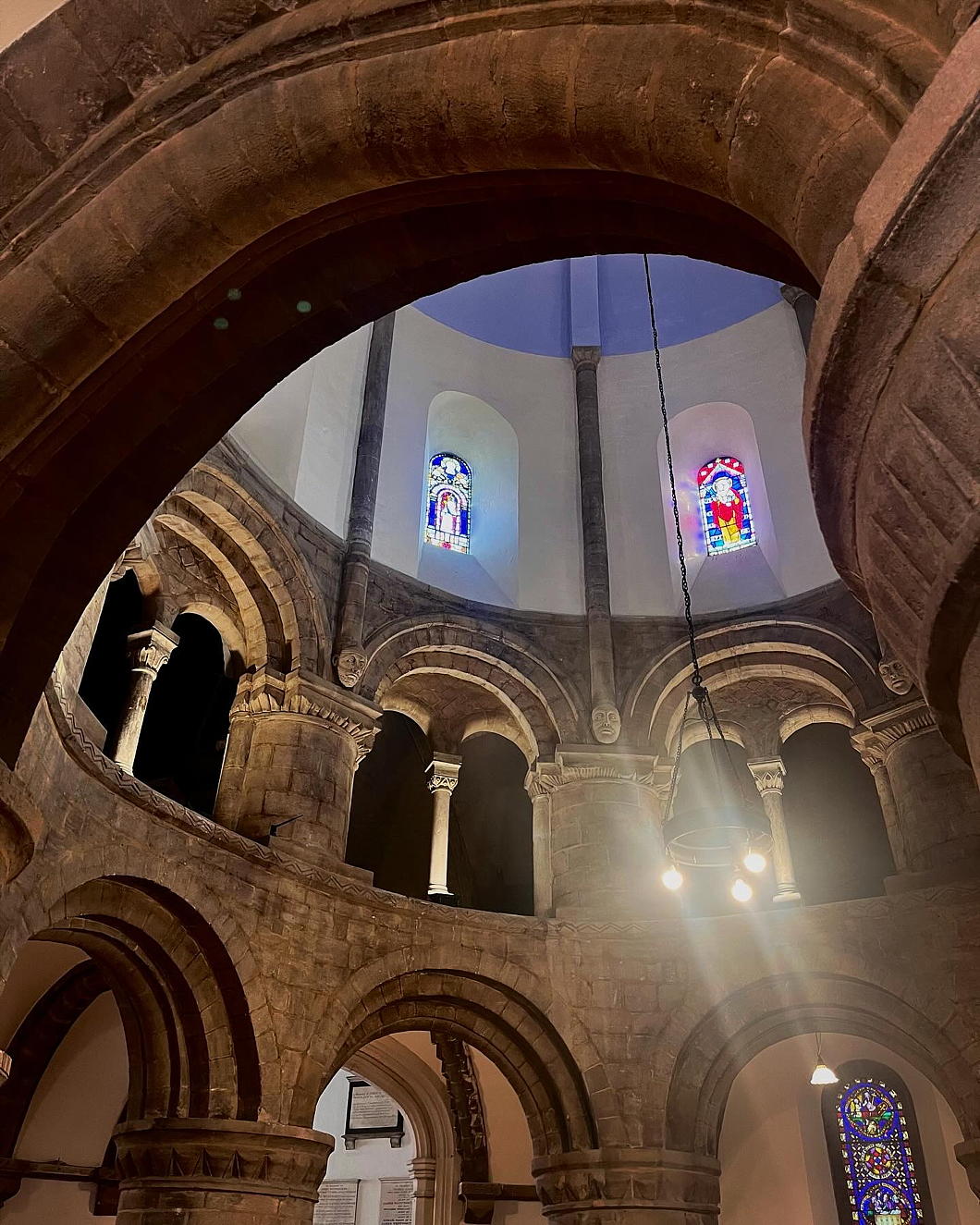
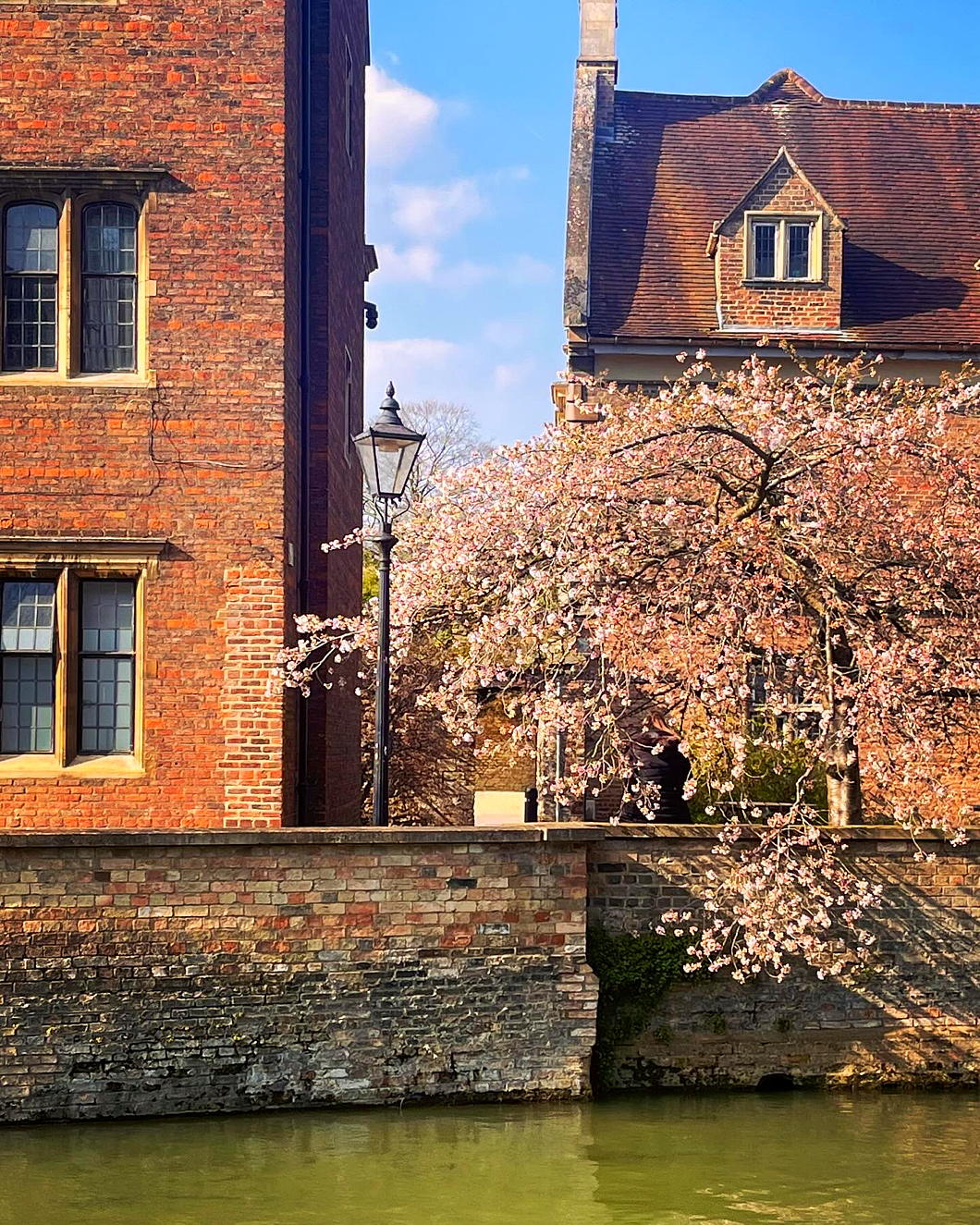
175 Years of St George’s Cathedral
ONE HUNDRED AND SEVENTY-FIVE years ago, at a time of great uncertainty in Europe, St George’s in Southwark was opened solemnly by Bishop Wiseman — writes the Cathedral Archivist Melanie Bunch. The ceremony was attended by thirteen other bishops in all their finery, of whom four were foreign. Hundreds of clergy of all ranks were in the procession and many of the Catholic aristocracy of England were present. The music was magnificent, the choir including professional singers.
Pugin’s neo-Gothic church was impressive but not finished, and it was not to be a cathedral for another four years. Dr Wiseman, who was both the chief celebrant and the preacher, was bishop of a titular see, as the Catholic dioceses of England and Wales did not yet exist. Nonetheless the opening marked a significant stage in the revival of the Catholic Church in this region. The spur had been the spiritual needs of the poor Irish who had long formed settled communities in parts of London and other cities. The plans for the church had been drawn up in 1839 – before the severity of the famine in Ireland, which began in 1845, could have been foreseen. Some had considered the size of the new church unnecessary, but it turned out to be providential, as immigration from Ireland to this locality and elsewhere was reaching a peak at this time.
The extraordinary turmoil in Europe that had started early in the year in Sicily could not be ignored. In February Louis-Philippe was dethroned in France. There was anxiety that revolution might cross the Channel. Pugin decided that he should obtain muskets to defend his church of St Augustine under construction in Ramsgate. Revolution spread to German and Italian states and countries under Austrian rule. For four days in late June, there was a brief and bloody civil uprising in Paris.
While Europe was ablaze, London was calm, and the opening went ahead. In his homily, Wiseman praised God for all his mercies to this country. From our perspective, we might have expected that he would have spoken about the dark days of persecution, or at least the struggles of the recent past to get such a large church built, constantly hampered by lack of funds. Rev. Dr Thomas Doyle, whom we honour as the founder of the Cathedral, was present and assisting at the Mass, but his courage, faith, and dogged persistence over many years were not acknowledged on this occasion.
We might remember that a Catholic event like this had not been witnessed in England since the Reformation, seemingly prompting Wiseman to take the opportunity to explain to the non-Catholics present that the ceremony and display of the Catholic Church came from a desire to show greater respect for God. To the foreign bishops he said that their presence proved the unity and diversity of the Church. At the end of his homily, Wiseman caused a sensation by reading out a letter from the Archbishop of Paris, Mgr Affre, regretting that he could not attend the opening. By then it was known that he had already died from wounds received on the barricades while he was trying to mediate with the rebels. Wiseman called him a martyr.
Among others who never saw the opening are some who served St George’s mission with Thomas Doyle at the earlier chapel in London Road. Three of them had died before their time, only a few years before, from diseases endemic among their flock. We remember them and all who have served the Cathedral with gratitude. At the time of the opening, St George’s was the largest Catholic church in London, and for the next fifty years was to be the centre of Catholic life in the metropolis. Much has changed since, including the rebuilding of the Cathedral, but we give thanks to Almighty God who continues to sustain it. (more…)
Sibiu/Hermannstadt
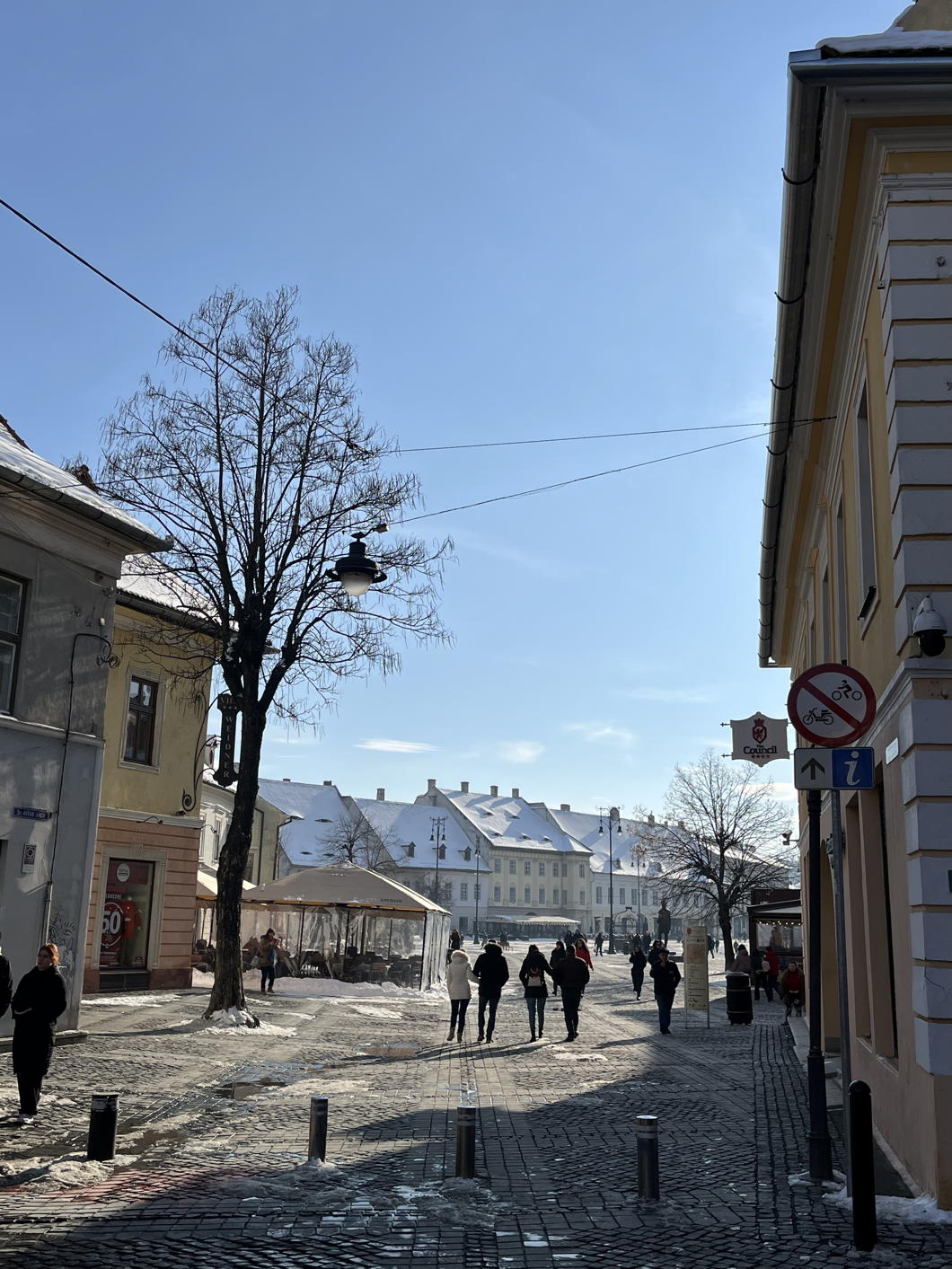
SIBIU’s name comes from a Bulgar-Turkic root word meaning “rejoice”, and having spent a few days in the city I can see why. It is handsome, clean, and clearly well looked after — perhaps well loved is the better term.
Unsurprisingly, the mayor partly responsible for this state of affairs was much vaunted for his efforts, to the extent that the Romanians elected him president of the entire country (and this despite him being an ethnic German).
As in all of Transylvania, there is a long history of mixture here, and while the past hundred years have seen a massive collapse in the Hungarian, German, and Jewish populations, many of them persevere all the same, sometimes even flourishing.
Hungarians are the largest and most visible minority in Transylvania — once the dominant people of this province of the Crown of St Stephen — but here in Sibiu they play second-fiddle to the Germans.
Arriving in the Church of the Holy Trinity in the great square for the Hungarian Mass on Sunday, the congregation at the Mass in German preceding it was still filtering away and clearly is the main event of the parish.
The Germans — or Saxons as they are often known — are today under two per cent of the city’s population but, as elsewhere, the Teutonic reputation for competence and efficiency means that a great many ethnic Romanians vote for the Germans’ party, the Democratic Forum of Germans in Romania.
When mayor Klaus Iohannis was elected to the Romanian presidency, he was succeeded as mayor by another member of the German community, the rather elegant Astrid Fodor.
But what of the ethnic Romanians that today make up ninety-five per cent of Sibiu’s townfolk? They are anything but ethnic chauvinists, and seem keen to preserve the traditions of the city and the province, and especially to highlight Sibiu’s distinctiveness. Those I had the pleasure of interacting with were effortlessly warm, courteous, and inviting. Their language is alluringly if mistakenly familiar.
Curiously, the Grand Duchy of Luxembourg maintains a consulate here in Sibiu / Hermannstadt with the ostensible excuse that the former German dialect of the town is a close relative of Luxemburgish. The connection bore fruit when Sibiu and Luxembourg City shared the honour of being European City of Culture in 2007.
It was around that time that Forbes magazine rated Sibiu as the seventh most idyllic place to live in Europe — ahead of Rome and just behind Budapest. While such ratings are always arbitrary, I can’t help but share their desire to praise this felicitous city. (more…)
Christmas Tree

A Few Quick Questions
Here are my answers from today, republished with the kind permission of the editor.
Always begin with Mass – I dislike leaving it to the evening. Usually at the Brompton Oratory, or at St George’s Cathedral right across the street from me in Southwark.
Following the news or taking it easy this August?
Picked up Le canard enchainé this week, which I do from time to time. Good to add words to my lexicon (flache-baque) and try and keep up with things the other side of la Manche.
Other than that, avoiding the news like the plague.
Breakfast plans?
Cappuccino and pain au chocolat. Boring but reliable.
What’s on the soundtrack lately?
‘Albi Ya Albi’ by Nancy Ajram and some beautiful Stradella arias.
And the bookshelf?
Just finished another Maigret, some Robertson Davies, and Seb Faulkes’ Bond novel. Now on Tom Gallagher’s bio of Salazar, Jan Morris’s Venice, and one of the Zen detective novels.
Been reading a lot of Leonardo Sciascia lately – his name is such a pleasure to pronounce – and I’ve got some John B. Keane and Anthony Levi’s biography of Richelieu on the way. Jaan Kross is sitting on the pile. And Juan Gabriel Vasquez, who I’ve enjoyed greatly.
A glass of something?
A good cold glass of white Burgundy outdoors, although in this heat a gin-and-tonic is always a welcome relief.
Lemon or lime?
Lemon, always – unless it’s Archangel, a delicious gin a mate of mine makes in Norfolk. Always a slice of orange with Archangel.
Sunday evening routine?
I usually try to have a night in on Sunday, but yesterday ended up in Hampstead meeting Isaac and Joe for a pint before Tijmen got us round for a Scotch (or “uno Scotch-ito” as he confusingly calls it) on the terrace as the sun went down.
The NW3 crew usually refuse to ever leave their postcode, but I drop in often and I can see why.
What’s on the menu lately?
A friend came round Saturday night for a quick dinner pre-pub session. I made some pappardelle, chopped up the leftover sausage I’d had at lunch and threw it in a pot with some sun-dried tomatoes, rosemary, thyme, lots of butter, pinch of dried Italian peppers, red pesto, mixed it all up and served with some ripped leaves of basil. Went down pretty well.
What’s the week ahead hold?
Two dinner parties – one Hungarian-Jewish/French in Putney, the other Welsh/German/French in Soho – and hoping to make it to ‘Raiders of the Lost Ark’ at the Prince Charles Cinema this Wednesday.
Other than that, a fair bit of work and writing and I hope a lot of reading in the garden.
Enjoy!
Thank you!
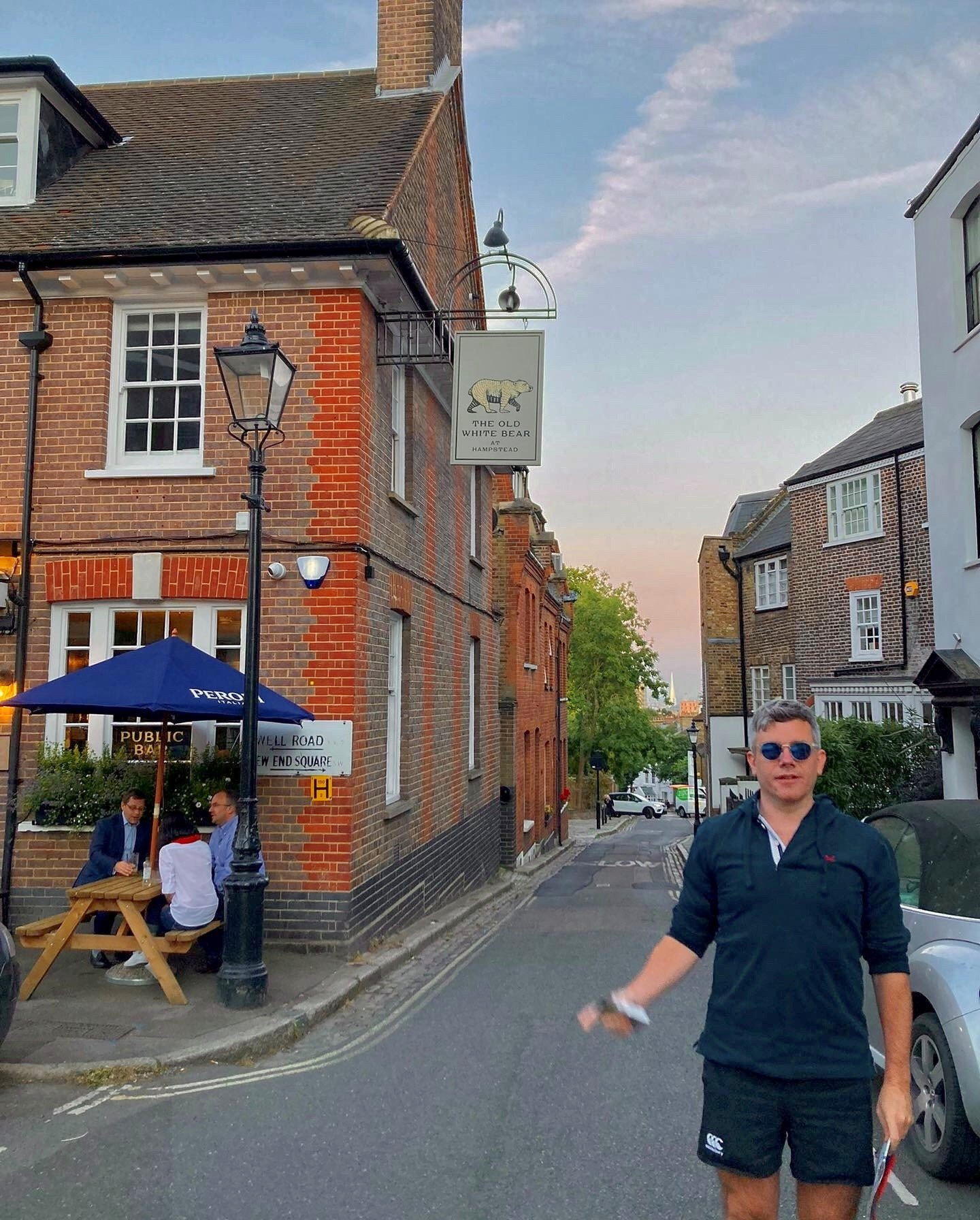
Mrs Evelyn Pelosi
I’ve only just heard of the death of Mrs Evelyn Pelosi, who departed this life at the end of last month.
Evelyn was piously devoted to the traditional liturgy of the Church and was a stalwart of the SSPX’s Edinburgh congregation — but she never stood in the way of houseguests attending the FSSP (or even the Novus Ordo!).
Her mischievous deadpan sense of humour was deployed to excellent effect in her occasional role as gypsy fortuneteller at festive events organised by the South Edinburgh Conservatives in the 1990s.
Another hat she wore was Convenor of the Monarchist League of Scotland (an entity whose events attracted a curious clientele) and from an early age she had a great devotion to South Africa where she visited me in Stellenbosch and introduced me to friends in the pro-life movement in Cape Town.
In the Seventies and Eighties, whenever she thought journalists in the Caledonian dailies were too forgiving of occasional terrorist outrages by the ANC their editorial offices frequently found themselves in receipt of a letter signed by Mrs E. Pelosi, Friends of Christian South Africa.
Mangosutho Buthelezi was among the many well-wishers whose cards could be found overflowing on the chimneypiece of her home in the Mayfield Road.
I remember watching the premier of the television version of Alexander McCall Smith’s “The No. 1 Ladies’ Detective Agency” at her’s there on Easter Sunday evening in 2008 — an Edinburgh/Southern Africa crossover event if ever there was one.
She was amused but dignified when another woman of her marital surname (but radically different views) ascended the political scene across the Atlantic, but for anyone who knew her Evelyn will always be the only Mrs Pelosi.
May she rest in peace.
Quadriliteral Toponyms
A list of four-letter place names
Since the plague of psychology unleashed itself unto the world, we now know that everyone who is X is actually a “frustrated” Y. Thus the excellent schoolteacher is really “just” a frustrated actor, etc. etc. ad infinitum.
If your humble and obedient scribe is a frustrated anything, it is a frustrated toponymist. The study of place names is a fascinating realm, and one in which supposition, guesswork, and pure balderdash thrive alongside — indeed, inextricably intertwined with — genuine scholarship.
An odd idée fixe developed in my head in the past month or two — first in a Soanian apartment in the Borough, then in a café in Madrid, finally this past weekend in Wiltshire — of coming up with a list of four-letter place names (quadriliteral toponyms, if terminological exactitude is your thing).
Sunday night in the West Country we took a discarded envelope and wrote down as many as we could think of, or find when visually perusing the maps of the 1920 Times Survey Atlas of the World.
There was no gazetteer, and had there been we probably would have considered that cheating. We also decided amongst the three of us that at least one of us would have had to heard of the place, and that rivers and bodies of water did not count. (Sorry Aral Sea and Sea of Azov! No admittance!) Countries, however, do count.
Excitement grew as we neared 100 places, and I was very proud to have topped off the century with Tuam in the motherland, but further examination reveals our calculations had been faulty and we came up with 110 places. (Drink had been taken, the reader will not be surprised to learn.)
Anyhow, here is the list we came up with, in the order in which the names were summoned by collective thought. (more…)
The Week
Our monthly Mass in St Wilfrid’s Chapel for the Order of Malta Volunteers. In the summer we sometimes fit about thirty people into the chapel but in the winter months volunteers tend to hibernate more. It being Lent has made everyone that little bit more morose and less keen on activity.
In accordance with custom since time immemorial, we all head to the Bunch of Grapes for drinks afterwards. Many are off the sauce as a Lenten penance, so miserable lime-and-sodas are aplenty. It is revealed that Rosie M. is an avid drummer. Didn’t you see the massive drum set when you walked into the farmhouse? No, because it was only about three seconds after I came through the door that you were already hurling insults. (Torturing Cusack seems to be a particular vocation amongst two-fifths of the M. sisters.)
The pub has suffered several improvements lately which occasioned its closing for several weeks. For a time refugees poured off to the Horrorglass or, my preference, the Star Tavern just a few minutes’ walk away in Belgravia. But return to the B.O.G. we must. It is now a little shinier, and some of the seating less convenient, but other aspects seem better (the lighting fixtures, I suppose). The staff, thank God, are exactly the same.
On Sunday afternoons there is now a gentleman who sits there and does the crossword and sometimes makes the occasional remark if he disapproves of the turn our conversation has gone. We must endeavour to provoke him – we were here first, after all.
A book launch at the Society of Antiquaries. I arrive at the same time as one of Queen Victoria’s great-granddaughters who inexplicably has a German accent despite having moved to this country just after the war when she was five or six years old. We do the washing-up together at a soup kitchen every week and for some reason we break out into laughter whenever we see one another. Nikolaus turns up so I introduce them and off they go. You are from Leipzig? I am from Coburg!
While cold outside it is of course too warm indoors and nary a window is opened. Nae bother. Another glass of white, please. Across the room I see The Young Major chatting merrily to The Army Doctor, probably conspiring against me. Liam and I talk about Athlone during the Civil War. Serenhedd gives no hints as to who will be the next provost of Oriel. Afterwards, a handful of us end up at what is allegedly the Queen’s favourite restaurant, off Berkeley Square.
To Marylebone for a supper with the local Conservative ward in Dorset Square. I have been attempting to help out with the party since I was a teenager at uni in Scotland, where our association was led by the ever-capable Stuart Paterson. (When Stuart did a year abroad in Germany, I had him write a ‘Bonn Voyage’ column for the student newspaper I edited.)
Campaigning in Westminster North last year, I came across a gang of rastas sitting on their front step enjoying the sunshine and drinking Lambrini. Naturally I engaged these gentlemen in conversation, apologising for my interruption of the beautiful afternoon and enquiring as to their voting intentions. The leader of the pack said he would be more than happy to vote Conservative but asked what reward they might receive for this virtuous act.
“Who knows, they might give you a peerage,” I suggested, careful not to cause an inducement that might transgress the Political Parties, Elections, and Referendums Act 2000. “OK OK – but Lord isn’t good enough,” our chief said in a thick West Indian accent. “I want to be a duke!” (I’d prefer a viscountcy myself, but I couldn’t help admire his vision.) “Yes, but if you are made a duke, what will you be duke of?” Our Jamaican friend raised his cheap bottle to the sky and said “DUKE OF LAMBRINI!” I insisted I couldn’t make any promises but that I would have a word with the Prime Minister, but only if we won the seat.
Given that we often associate an interest in politics with tiresome boors, one is always slightly surprised how fun and interesting most of the people you meet at Conservative party events are, and Wednesday was no exception. In addition to new people there were some good old faces as well (Gudmund, Pritchett, and of course E.M. who got us there in the first place.) I apologised to Mark Field MP that I was no longer his constituent, having moved from Pimlico to Waterloo, but my MP there is Kate Hoey who is a Brexit-voting pro-foxhunting Labourite from County Antrim, beloved of many Tories.
To Spitalfields for a drinks party in Mariga Guinness’s old townhouse now inhabited by (amongst others) a black Labrador named Ralphie. The evening was a tribute to Mariga organised by the London chapter of the Irish Georgian Society. In addition to founding the Society in 1958 with her husband Desmond Guinness, she was also almost single-handedly responsible for the revival of run-down neglected old crime-ridden Spitalfields, whose Georgian houses with their particular style are now highly prized.
The historian Dan Cruickshank was on hand to elaborate on how this came about and Mariga’s skillful charm in wooing councillors, politicians, neighbours, and future residents and to tell us of the wonderful parties that were held in these very rooms.
In addition to its history and its architecture, the neighbourhood boasts one of the finest London-centric blogs in existence, the eternally interesting Spitalfields Life, written by the Gentle Author. I tried to prod one of our hosts into revealing the identity of the Gentle Author, who alas couldn’t make it that evening, but a sturdy silence was maintained and the Author’s anonymity safeguarded. Secrets are safe in Spitalfields.
Disgracefully I had never been to St Mary’s Church in Cadogan Street, Chelsea, until this day, and it took the funeral of dear Ann’s sister to get me there. It is a beautiful church, the sanctuary curiously quite English, especially when one considers it was designed by Bentley who was responsible for the Byzanto-Edwardian cathedral church at Westminster we love so well. The church was founded in the 1810s by the Abbé Jean Voyaux de Franous, who took on the spiritual care of the Catholic pensioners at the Royal Hospital Chelsea nearby.
The brief eulogy after Mass pointed out that Ena-Maria was not known for her punctuality. Once arriving at a house in northern France, having driven from climes further south, she was greeted by her hostess and apologised deeply for turning up two hours later. “My dear Ena-Maria!” came the reply, “You are not two hours late, you are twenty-six hours late!”
Besides anecdotes of the departed, the conversation at the reception following turned to a variety of subjects: Brexit, the Hapsburgs, Romy Schneider, that sort of thing.
It is already a whole year since Sharon Jennings shuffled off this mortal coil. A whole gang of us, perhaps a dozen or so – family, friends, clergy, and dogs – gathered at her graveside to pray the Rosary and say the Vespers of the Dead. The sun hung low in the sky, peeking occasionally through the clouds to illuminate the lump of earth where Sharon’s remains now await the end of time and the raising of the dead.
The next day a Year’s Mind Mass was offered for the repose of her soul in the St George’s Chapel of Westminster Cathedral, where the statue of Our Lady of Walsingham that she lovingly restored is displayed. In his homily, Canon Tuckwell mentioned that Sharon was “a woman of surprises”, one of which was the revelation at her death that her up-til-then well-hidden middle name was Anona.
My last memory is of visiting her in hospital. “What’s the prognosis then?” “Death, guy.” (She called everyone ‘guy’). Soon enough she was onto her favourite subject of who had been awful lately and great kindnesses and which priest was being insufferable and did-you-hear-about-what’s-her-name and that sodding you-know-who.
Sharon was a mother, wife, playwright, poet, artist, writer, gin-drinker, and friend and dearly missed by all who knew her. She was also a collector of people – waifs and strays of many kinds – and it was testament to her continual kindness, generosity, and hospitality that so many people have taken the time to gather and pray for the repose of her soul a year after her death. May her soul and the souls of all the faithful departed, through the mercy of God, rest in peace.
Pimlico Forever – Belgravia Never!
It started with hints and rumours, ill-whispered talk on street corners and tiny little changes, but now it’s all gone too far. You see, Pimlico, the quarter of London in which I dwell, seems under threat of annexation by its far grander but past-its-prime neighbour Belgravia.
It all seemed quite amusing at first. One day I came home to our humble address in Pimlico and was surprised to find the Belgravia Residents Journal amongst our post. Then Tatler nailed its colours to the mast and claimed the Italian coffee shop on our Pimlico street corner is in Belgravia. I went to my bank branch the other day to sort out a minor matter of travel insurance only to notice ‘Belgravia branch’ spelled out in clear concise Helvetica letters. Was that always there? I wondered.
Residents are befuddled and confused for the most part. No one’s quite sure what’s going on. Memories of “Passport to Pimlico” are exchanged — “Blimey! I’m a foreigner!” Concerns that Cambridge Street Kitchen (or at least its Cocktail Cellar) may be in on the move. “Isn’t this place a bit Elizabeth Street?” she said, sipping a Mexcal Negroni.
Landlords in particular are viewed as being suspiciously complicit in Belgravian expansionism. It’s widely assumed that speculators are keen to turn our beautiful whitewashed Pimlico homes (most of them long since divvied into flats) into the embassies, cultural institutes, and the bland organisational headquarters for which Belgravia is known.
“Do you think we’ll get some embassies after we join Belgravia?” one resident asks. Another points out we already host three: Lithuania, Albania, and Mauritania. “Perhaps we could get Sweden. Do you think we could get Sweden?” No one seems to know.
Some pooh-pooh the entire idea as hyped-up nonsense. “What on earth would Belgravia want from us here in Pimlico? Her Majesty’s Passport Office? The Queen Mother Sports Centre? The Catholic Bishops Conference? The flippin’ UK Statistics Authority?” (I admit, I had no idea the UK Statistics Authority is based here in Pimlico.)
Others prepare for collaboration. “We’ve always considered this Lower Belgravia,” Dr O’Donnell says with a wry smile.
Still, there is talk of resistance. Estate agents have reportedly been threatened with the use of force by mysterious figures in black cagoules. Suggestions of pre-emptive action, or recourse to the Court of Justice in Strasbourg. Should we strike first? Enclaves of Pimlico the other side of Buckingham Palace Road, like the pool hall in Ebury Square, could be used as springboards for a more active approach. The Filipino ladies in the Padre Pio shop on Vauxhall Bridge Road seem blissfully unaffected.
Confusion reigns, uncertainty is rampant, no one knows what the future holds.
Hoarding has commenced and local shops are quickly selling out of useful products (bog roll, Pringles, gin, etc.).
From St George’s Square to Victoria Station, fear grips the streets. At least its stopped people talking about Brexit.
Lisbon
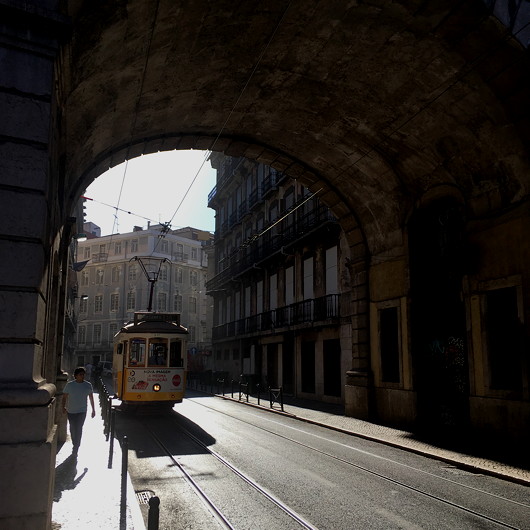
One of the finest cities I have had the privilege of visiting, only lightly touched by the grim hand of modernism.
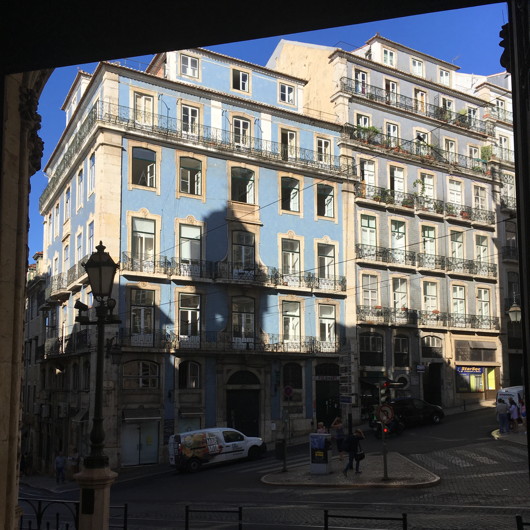
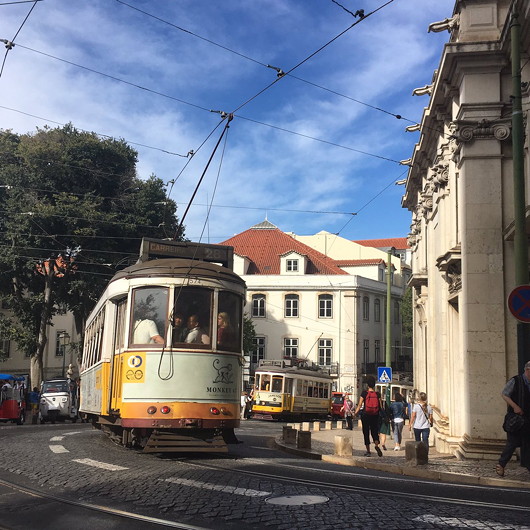
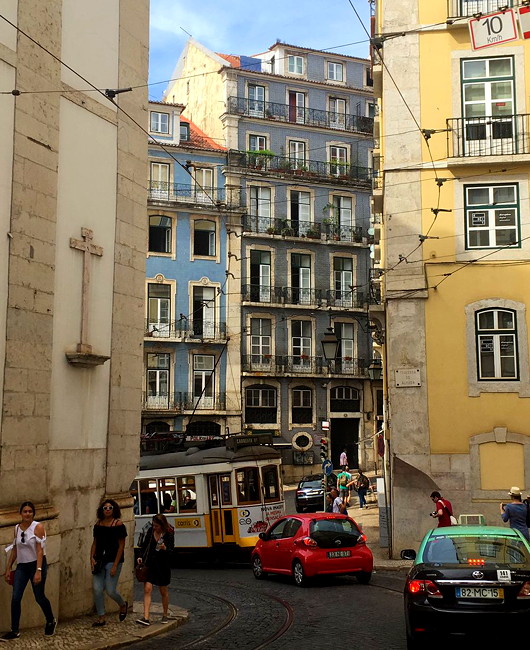
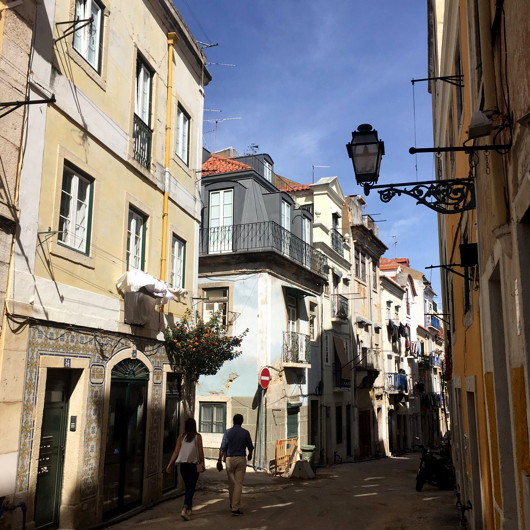
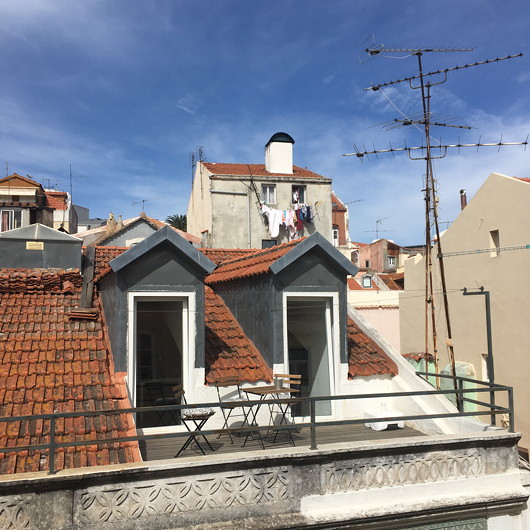
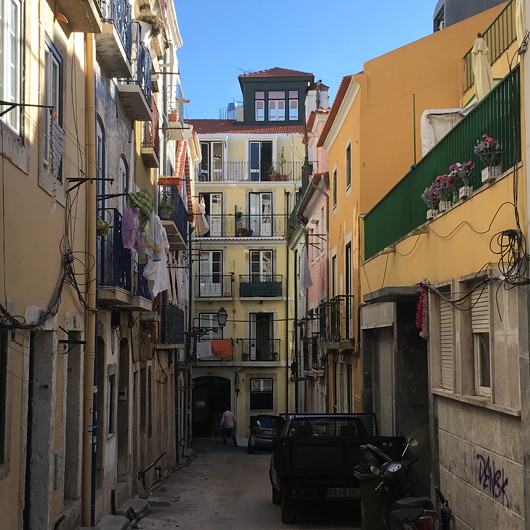
A.D. MMXVI
All in all, a rather amusing year I thought. In 2015 there were a lot of jaunts to the continent, but 2016 — in true Brexit fashion — was the year of the domestic excursion (or ‘staycation’ if you’re a modern person). I also, through great cunning, managed to get to the theatre fairly often and even a jaunt or two to the opera.
Here are a few photos from the twelve months just past us, in no particular order. (more…)
Diary
EVERYONE was at the Opera last night. It was the final performance of a magnificent production of Il trittico, Puccini’s triptych of three one-act operas alluding to the Divine Comedy. While I go to the theatre fairly often I hadn’t been to the opera since many many moons ago when I was dating una Italiana who had a taste for it. These days, the Mad Architect is one of the handful of people I tend to go see things with. His tastes are similar to mine but he is easily irritated and always seems to pick a fight with some other member of the general public (or once, on the Eurostar, the barman – but it was actually deserved in that case). This can provide some intense amusement to the observer so long as you are prepared to disown him totally at a moment’s notice (which I have yet to do).
Anyhow, during the first interval we wandered out onto the open terrace – from whence smoking has since been banned – and who should we stumble upon but the charming and deeply fun Valentine Walsh, one of the finest art restorers in Europe, with a relation of hers. Then, but a few seconds later, our own roving reporter Alexander Shaw appeared with an old school friend. As I sometimes point out, London can feel like a delightfully small town. The Spectator’s Rod Liddle and Michael Portillo of ‘Great Railways Journeys’ fame were also in evidence, but we let them be.
But what of the opera? The first act, Il tabarro, is set on the banks of the Seine and was well sung but more than the singing I admired the highly architectural setting imagined by the mononomical set designer ‘Ultz’. (How one both derides and admires the arrogance of arrogating to oneself a single name – but then, like Hitler and Stalin, I myself am often known by surname alone.)
The second one-act opera in this triptych, Suor Angelica, was the real meat. Here is a deeply intense display of love and hatred, sin and repentance, compounding personal tragedy with the reality of mortal sin. Sadly we were deprived of the vision of the Blessed Virgin called for in Puccini’s original but it was surprising that director Richard Jones played the opera’s Catholicism straight and frank, without any of the usual modern snobbish sneering. Ermonela Jaho was powerful in the title role, convincing. Valentine was in tears.
But if Il trittico is like a three course meal then Gianni Schicchi is the delicious pudding. When Buoso Donati dies and leaves all his wealth to a monastery, his eight predatory relatives are forced to call upon the clever peasant Gianni Schicchi to use his worldly cunning to fake a new will. This is Italian farce at its most amusing but also its most beautiful and as Gianni includes the most well-known operatic song in the world – O mio babbino caro – it’s a crowd pleaser as well.
The Mad Architect noted that the English don’t really enjoy opera: they take it far too seriously, whereas the Neapolitans love it and join in the singing, even if they don’t know the words. Alexander thinks the Royal Opera House has become little more than a giant cruise ship for plutocrats and then descended into telling us his plan to sell Deptford to the French (or was it to Hong Kong?).
My only complaint was the surtitles, which often did not match the original Italian. This happens on Scandinavian crime dramas as well, in which non-blasphemous swear words are inaccurately translated as blasphemous English ones. But this is probably some contrived vogue in the realm of translators, that you mustn’t translate things as they are but to something somewhat similar but not quite the same, thus depriving you of the character of the original language.
What’s next on the agenda then? Sometime at the Old Vic, I think, and then something at the Almeida, and later on this year there’s Ryszard Kapuściński’s book on Haile Selassie, The Emperor – “I was working in the Ministry of Ceremonies then, Department of Processions…” – being done in a stage version at the Young Vic.
Desk

My old desk when I was working at The New Criterion in New York.
The bottle of Pimm’s — a gift from “Mr & Mrs Peperium” — was, alas, knocked over and broken by the cleaner.
Two Girls on a Tandem
Rose and Molly are two of my favourite people in the entire universe, and when they announced they were racing a tandem across the Cape Peninsula to raise money for the men’s charity Movember, how could one fail to get behind such an effort?
Movember is the charity that raises money for and awareness of men’s cancer (prostate, testicular, etc.), poor mental health, and physical inactivity amongst men. It turns out Molly happened to meet one of the global charity’s founders in a brewery not too long ago and was inspired to help out. Movember is most well known for encouraging men to grow a moustache and raise money during the month of November, but for obvious reasons this option is denied to Rose and Molly. And so instead they will be competing — on a tandem! — in the 2016 Cape Town Cycle Tour next month.
The girls have a blog going to publicise their training and efforts, as well as a JustGiving page to raise money, but they decided to throw a ‘Big Movember Lunch’ yesterday to raise extra dosh for the cause. This caused particular salivation in Cusackian quarters as both of them happen to be excellent cooks of the highest order, skills which draw many to their amusing parties in easterly bits of London.
So yesterday we satiated our voracious hunger at Movember’s UK headquarters in Exmouth Market where Molly and Rose treated us to culinary treats beyond one’s dreams — and Mark from Movember explained a little about the good work the charity does and how it’s expanded in recent years. The good cause and delicious food were only added to by the superb company Molly and Rose had assembled. If you have a shekel to spare, send them some love.
Canapés
Tostadas with Guacamole and Black Beans and chorizo
Dill Scones with Smoked Salmon and Horseradish
Stilton and Pickled Pear Puffs
Mini Meatballs with Mango dip
Beetroot and Goats Cheese Tartlets
Starter
Gammon and Mustard Terrine on Sourdough or Rye Bread
Main Course
Slow Cooked Chicken and Mushroom stew, Pomegranate and Quinoa Salad, Roasted Butternut Squash and Sweet Potato and Tzatziki on Beetroot and Buckwheat Pancakes
Pudding
Rose and Pistachio Cheesecake
Petits Fours and Coffee
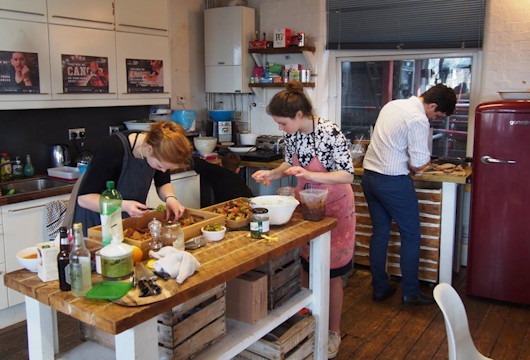



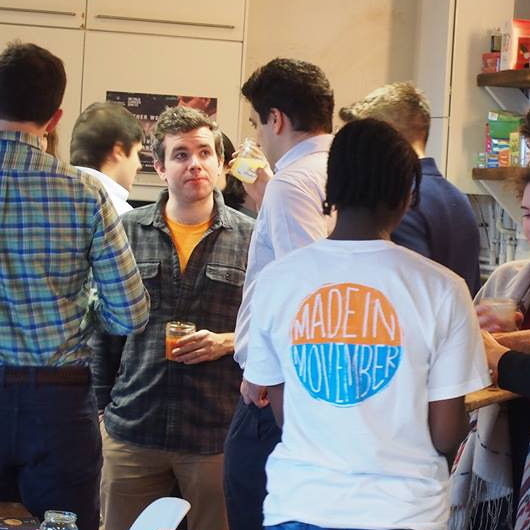

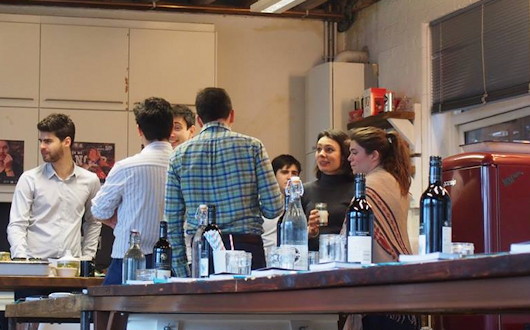
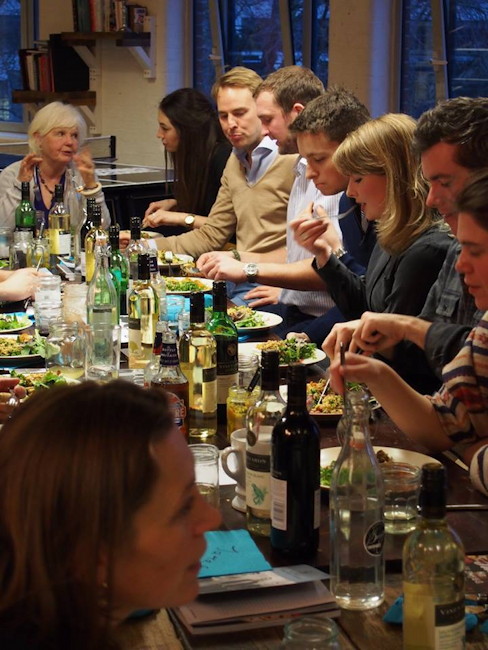
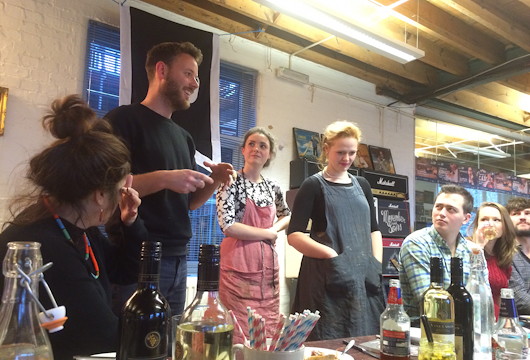
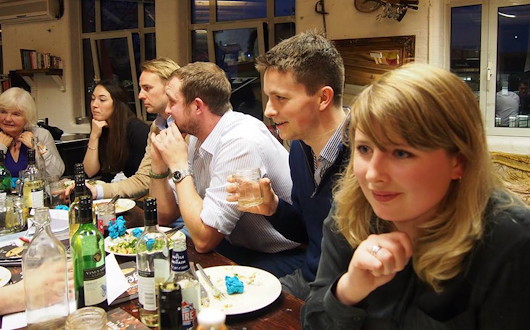
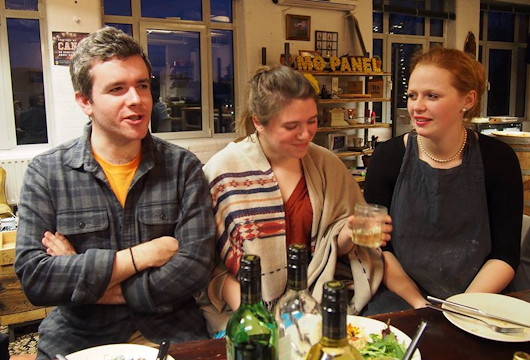
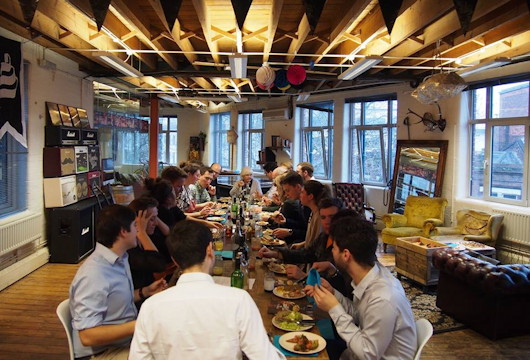
Caledonian Expedition
Sun, sand, champagne, Scotland: there’s not much more you could ever want, but to have an alignment of these four in the month of October is rare. It had been quite some time since the Cusackian feet had last graced the cobbles of the beloved ‘auld grey toun’ – the Royal Burgh of St Andrews – but a friend got in touch on a Monday morning with the provocative text “Scotland Friday?” I couldn’t resist. (more…)
April to September
Between the vernal equinox and its autumnal confrère tomorrow there has been perhaps an excess of fevered activity. Aside from the usual time in London, I have been in Amsterdam, the Wolds of Lincolnshire, the Essex seaside, the Pyrenees, Kent, Paris (much scrubbed up since my last stay), Chartres, Oxford, Hertfordshire, Buckinghamshire, Lebanon, Midlothian, Connacht, and Norfolk. And before Christmas I should have two trips to Rome.
Regardless, here are just a few photos from the past six months, arranged in roughly chronological order and lightly explained, in order to keep you up to speed. (more…)
Diary
It is truly a sad thing for a summer to end, and yet it is an inevitable part of the endless cycle of life. July was full of its annual rites: two weeks in Lebanon and then the traditional festivities associated with the return of the OMV contingent from Lourdes — jugs of Pimm’s at the Scarsdale followed by the manic dinner, drinks, dancing, and smoking at Pag’s late into the night. Miss S. had always avoided the Pag’s part of the festivities, decrying it as a futile attempt to prolong the jollity. She decided to come along this year, however, and enjoyed it so much she stayed well past two in the morning. In fact, I think she was still there when I left.
So it didn’t really seem like summer really kicked off until August. (more…)
Late Summer, Early Autumn
Florence to London on Twenty Euros
THERE COMES A POINT in every young man’s life when his trust fund manager goes on holiday. It is fitting that what follows occurred during International Poverty & Homelessness Awareness Week and, certainly, I hope that my experience will raise awareness among the demographics concerned as to how they should conduct themselves.
ITALY
Let me tell you about poverty: there is poverty, there is urban poverty, and there is urbane poverty. The story of my rapid regression through these strata starts in the billionaire’s playground that is Forte dei Marmi. I had already accepted the invitation when I realised I had blown my last €30 on a bottle of Frescobaldi (I’m not a wine snob, but I only buy from friends). We had arrived in Vieri’s 1988 Posche 911 and being a Friday night in early August, Mina’s Bussola club was chocked to the gunnels with a vast array of Eurotrash. There were refugees from Biarritz, Ibiza clubbers who got rich, Moscow clubbers who fell out with Putin, abstract artists, Botox-pumped bankers wives and industrialists’ daughters from Munich and Frankfurt, all vamped up on HRT, champagne, and Prozac. It was as raucous as the bombing of Dresden, and nearly as fun. Imagine someone had pumped laughing gas into the celebrity arrivals gate at Heathrow, and you’ll get the picture. (more…)
Into the Qadisha Valley
THE HOLY VALLEY cuts down like a gash in the earth, with the cathedral city of Bcharré on the clifftop, almost hanging off of it. One almost wonders if you started building at the other end of the town, it might force St Seba’s Cathedral off over into the deep beyond. There is something almost Lord of the Rings about the setting, a Levantine Minas Tirith, if only Tolkein had been a Maronite.
The Qadisha Valley (Ouadi Qadisha, وادي قاديشا, literally the “Holy Valley”) takes its name from the Aramaic word for saintly and for over a millennium its natural caves have provided shelter for hermits seeking solitude as well as others seeking refuge and safety. Evidence of human habitation dates back to the Paleolithic era, and the Qannubin Monastery here is said to have been founded by the Emperor Theodosius the Great in the fourth century. While this is the holiest ground of the Maronite Catholics, hermits living in these caves and in these monasteries have been Melchite, Nestorian, Armenian, Syrian Orthodox, and Ethiopian. When the Monastery of St Maron was sacked by Antiochene Monophysites, many monks fled to the Qadisha Valley, strengthening the presence of this Eastern church which has always remained in communion with Rome. For over five hundred years, the Maronite patriarch made Deir Qannubin his seat. (Since 1830 the Patriarchate has been based at Bkerké above the pleasant Mediterranean city of Jounieh). (more…)
Search
Instagram: @andcusack
Click here for my Instagram photos.Most Recent Posts
- Burns Tower April 19, 2024
- Patrick in Parliament March 18, 2024
- Articles of Note: 13 March 2024 March 13, 2024
- Cambridge March 9, 2024
- Taken on Trust March 4, 2024
Most Recent Comments
Book Wishlist
Monthly Archives
Categories


